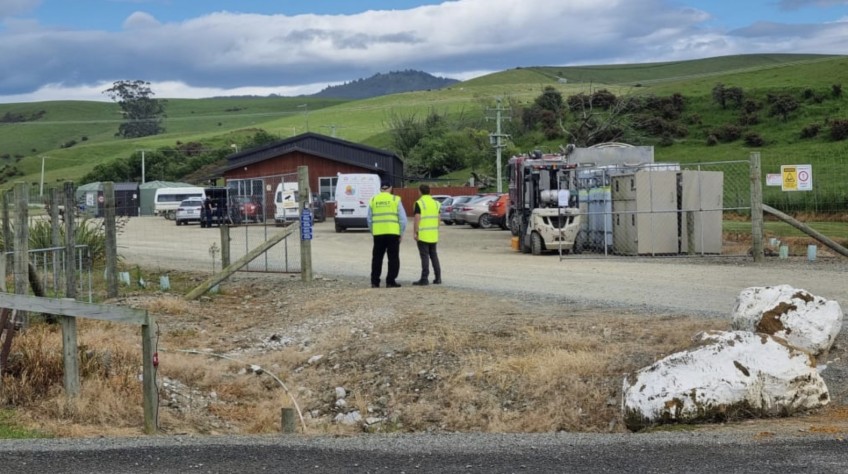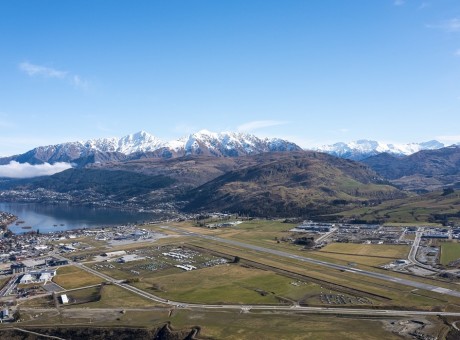Dunedin poultry farm being tested for bird 'flu

A second poultry facility in Otago is being tested for ‘bird flu, as Biosecurity New Zealand starts culling chickens at the site of the nation’s first confirmed case in Moeraki.
“Work started this morning to humanely cull chickens in two sheds on a farm managed by Mainland Poultry where testing confirmed cases of an H7N6 subtype of avian influenza in birds,” Biosecurity New Zealand deputy director-general Stuart Anderson says.
That case involved a farm near Moeraki, which tested positive for the disease on Monday, and he confirmed testing was underway today at a Dunedin facility.
“We’ve also placed a precautionary restricted place notice on a small free-range farm near Dunedin stopping the movement of material on and off the property,” he says.
“As is normal in biosecurity responses we always investigate where illness is identified. The property has around 6,000 birds, with a number of deaths, and testing is underway.
“The property is not owned by Mainland Poultry, and we are investigating if there are any links between the first property and this one.”
Mr Anderson says testing is being carried out on birds in remaining sheds on Mainland Poultry’s egg farm and at other properties of interest.
“We will continue rigorous testing over the coming days and weeks and will take action as required,” Mr Anderson says.
Mr Anderson says the cull at the Mainland Poultry’s egg farm in Moeraki is being carried out by the business and supported by Biosecurity New Zealand.
“The cull is expected to take two to three days, using the existing industry standard practice of CO2 containerised gas, which farms regularly use to euthanise chickens.
“The carcasses, along with litter from the affected sheds, will be transported to a secure landfill in Southland, equipped to take this kind of waste.
“The carcases will be loaded directly onto trucks with a leak-proof plastic lining, which has been thoroughly tested.
“It’s important to point out the landfill has specific features to prevent the leaching of materials into the environment, including impermeable layers, and a process of routine monitoring.
“The disposal will be in a deep pit and in an area well away from any public access, and the landfill will be closed during this process.
“There had been no reports of concern about other ill or dead birds on other poultry farms.
“Contract tracing has revealed limited movements between Mainland Poultry’s affected farm and some of the other poultry farms in the area.”
Mr Anderson is reminding people the risk to human health remains low, and there are no concerns for food safety or wildlife.
“Avian influenza viruses are killed by cooking, so it remains safe to eat thoroughly cooked egg and poultry products,” Mr Anderson says.
“Raw eggs have always been considered a high-risk food. Our advice remains not to consume or serve raw eggs, especially to those with low or compromised immune systems, as the eggs may contain harmful pathogens, including salmonella.”
The 10-kilometre buffer zone around Mainland Poultry’s egg farm will now be referred to as an enhanced surveillance zone.
Biosecurity New Zealand will be increasing its presence on the ground in Otago and has set up a regional control centre today to manage the situation.
“Over 100 staff across MPI, including frontline biosecurity, trade and market access, veterinarians, agriculture, communications, and food safety are contributing to the response and this number is increasing daily as required, both on the ground in Otago and in our operations centre,” Mr Anderson says.
Otago Regional Council environmental implementation manager Libby Caldwell says the council has offered to support MPI, the agency leading the response.
"This is a scenario that has been prepared for at the national level. MPI will lead the response to avian flu as it arrives in the country and we will support them and other agencies such as DOC, Fish and Game and district councils where and as we can.
"At the regional level we have also already commenced work on a response plan for strain H5N1(the more serious and virulent strain) as it relates to Council’s work. We will look to see if any of this work needs to be stood up."
Main image (RNZ / Tess Brunton) : The Moeraki egg farm where avian influenza was detected this week, a second property in Dunedin is also being tested as a precaution.
























